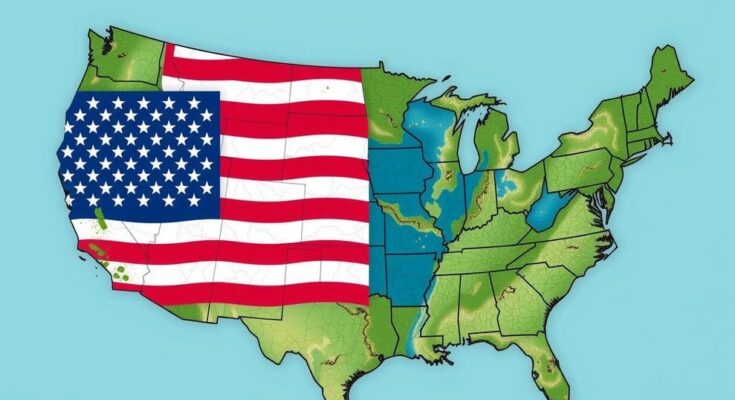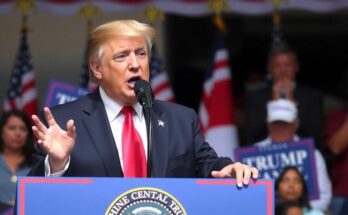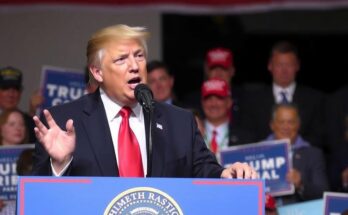President Trump’s potential second withdrawal from the Paris Climate Agreement could differ significantly from the first, occurring more rapidly due to political changes. Experts cite concerns of diminished trust and potential ripple effects among other nations, while advocates argue for economic sovereignty and reduced obligations under the treaty. The implications for U.S. engagement in climate policy remain crucial as the leadership transition looms.
The possibility of a subsequent U.S. withdrawal from the Paris Climate Agreement under President Donald Trump presents several unique implications compared to the first exit. Initially established at the U.N. Climate Change Conference in 2015, the treaty comprises nearly 195 signatory nations committed to collective action against climate change. After the U.S. joined under President Obama, Trump was restricted from immediate withdrawal due to treaty stipulations that necessitate a three-year waiting period post-accession. Thus, the U.S. did not officially exit until late 2020.
President Joe Biden reinstated the U.S. in the agreement early in his term, however, Trump has indicated intentions to withdraw if he secures the presidency again. Unlike the previous withdrawal, a subsequent exit could occur swiftly due to the existing political circumstances. According to David Waskow of the World Resources Institute, “It would be a very different timeline now.”
Experts like Max Boykoff from CU Boulder have expressed concerns that a U.S. withdrawal could diminish trust among global leaders and potentially trigger a domino effect, prompting other countries to leave as well. Furthermore, reactions from leaders like Argentina’s newly elected President, Javier Milei, hint at a growing dissent toward the treaty among some members.
Advocates for a second withdrawal, however, have articulated perceived benefits. H. Sterling Burnett of the Heartland Institute claims, “The benefits of exiting the Paris climate agreement are many… reclaiming U.S. sovereignty while respecting the rule of law.” He argues that the treaty imposes unnecessary economic burdens on the U.S. while enabling competitors like China to evade stringent emission reductions.
There is additional discourse about potential withdrawals from the U.N. Framework Convention on Climate Change (UNFCCC), a 1992 treaty aimed at mitigating harmful climate impacts. Former EPA Chief of Staff Mandy Gunasekara has suggested that the administration review its commitments within both agreements, stating that exiting the UNFCCC could provide a more durable solution to what she views as detrimental international agreements for the U.S. economy.
Concerns regarding the vitality of the Paris Agreement persist, with U.N. Secretary-General António Guterres expressing the sentiment that while the agreement can survive, its effectiveness might dwindle if the U.S. disengages. He emphasized the importance of U.S. participation and leadership in achieving essential climate goals such as maintaining the 1.5 degrees target.
The Paris Climate Agreement was forged during the U.N. Climate Change Conference in 2015, representing a significant multinational commitment to combat climate change. This legally binding treaty had seen the participation of nearly 195 parties, including the United States, which entered under the Obama administration in 2016. Given the framework established by the agreement, the U.S. was unable to withdraw immediately upon Trump’s inauguration due to procedural requirements. The implications of a potential second U.S. exit have drawn considerable attention, especially concerning international trust and the motivations behind such a decision.
The prospect of a second U.S. withdrawal from the Paris Climate Agreement following a Trump presidency raises critical strategic and diplomatic questions. Unlike the first departure, a more rapid exit could exacerbate global distrust and potentially catalyze a series of exits from other nations. Advocates for withdrawal champion the idea of safeguarding economic interests against perceived international obligations, while experts highlight the potential harm to collective climate action efforts. The discourse surrounding U.S. leadership in global climate initiatives remains a pivotal element in the ongoing discussion on environmental policy.
Original Source: www.foxnews.com




